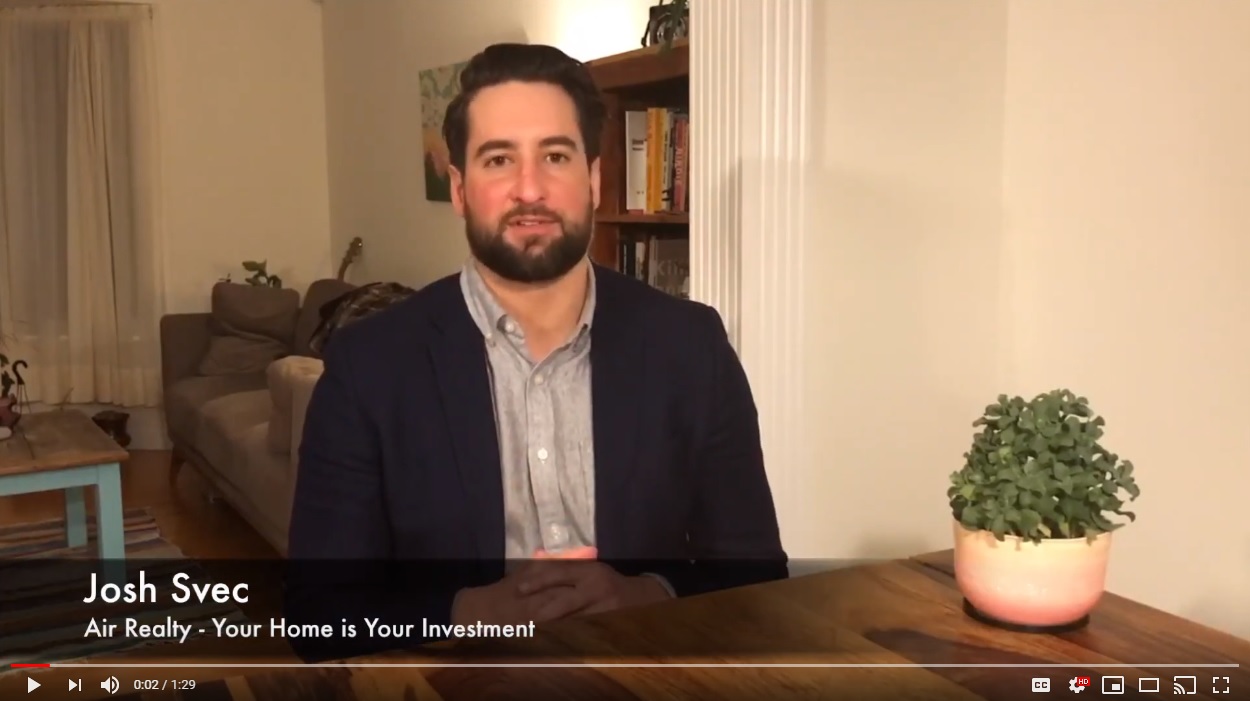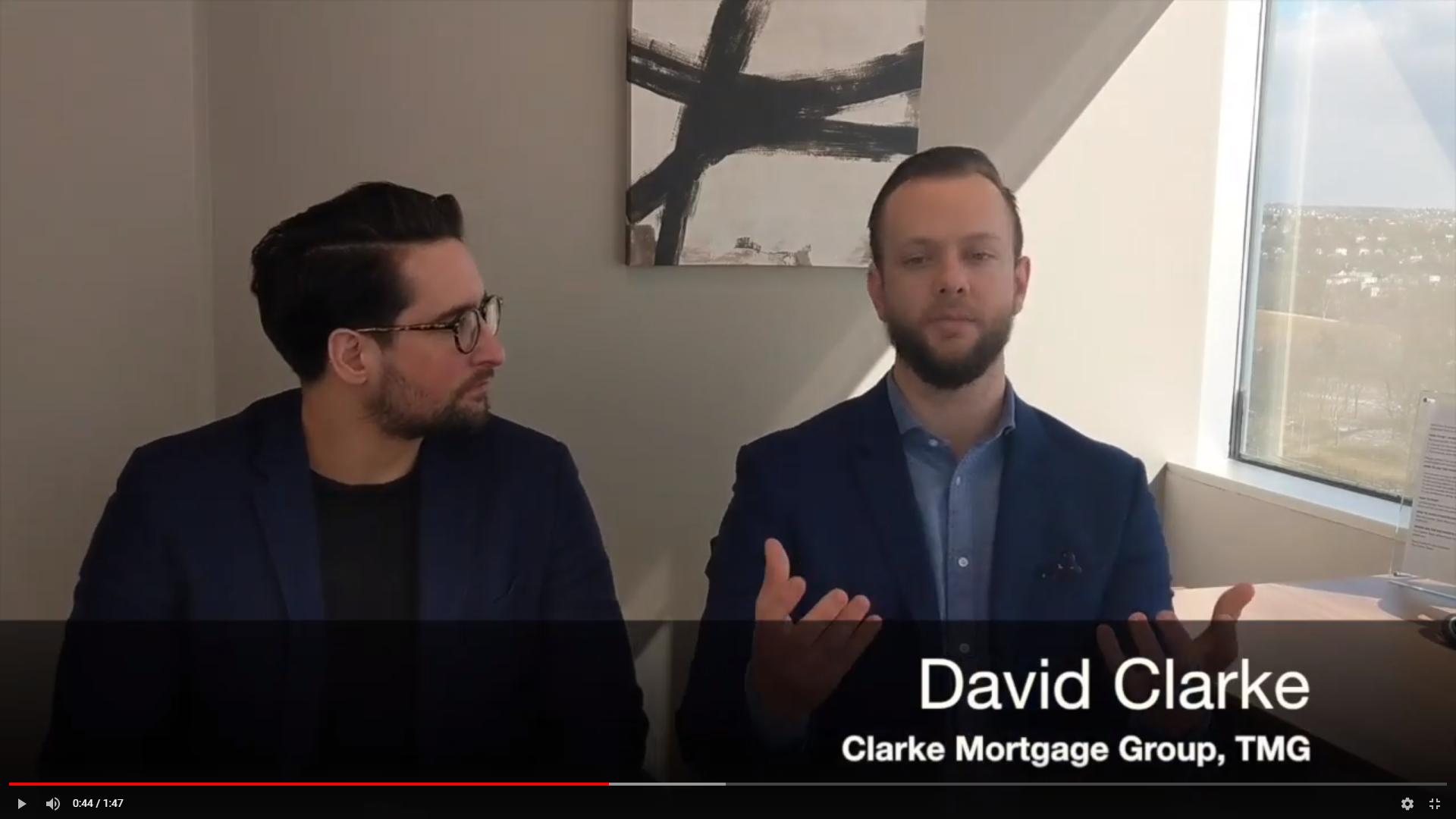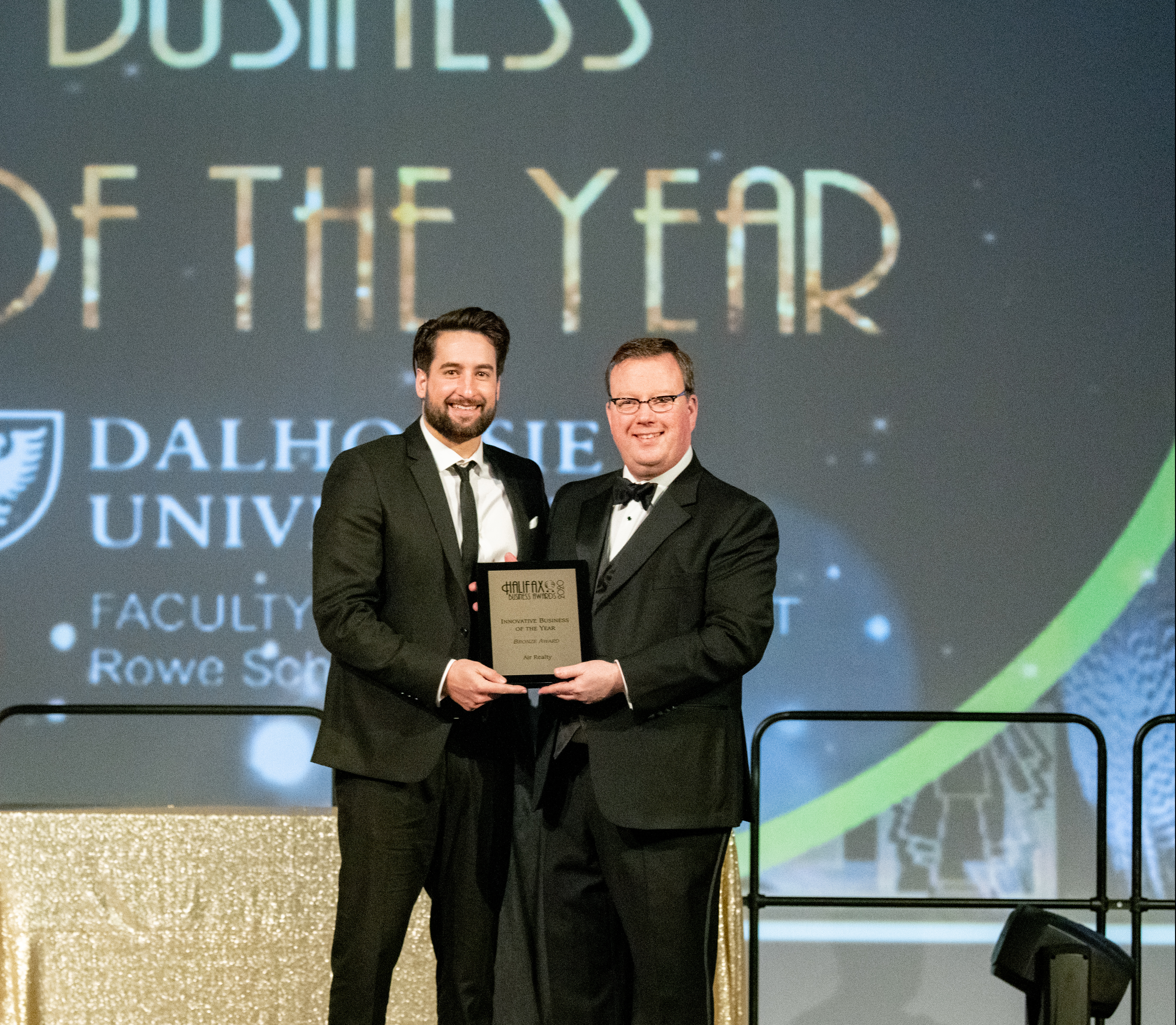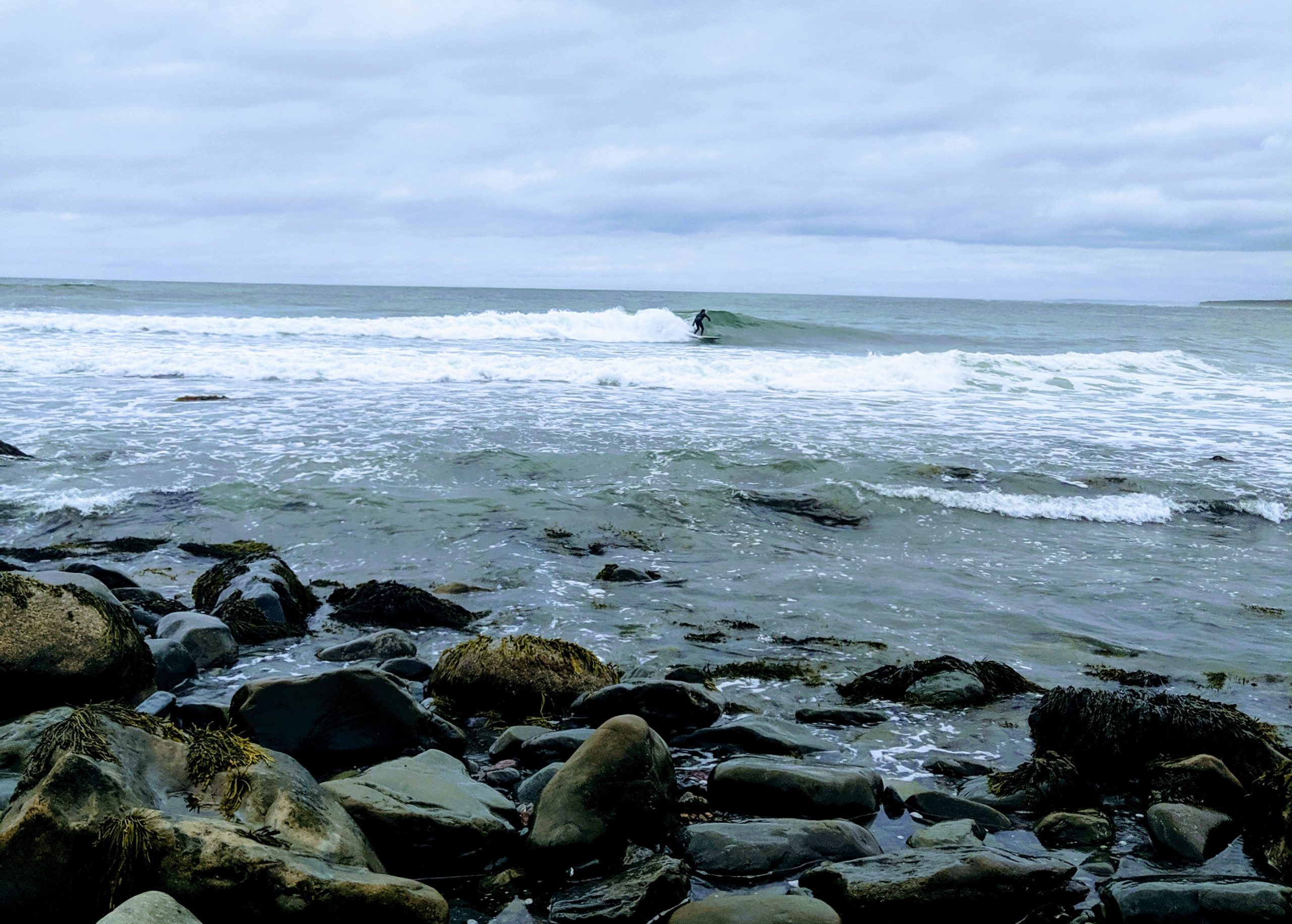Hey Halifax, Your Home is Your Investment

Hey, Halifax, Nova Scotia — did you know your home
can be the most important investment you will ever own?
Learn how to capitalize on your real estate asset(s)
to ensure you always receive the best return on your investment.
By Joshua Svec, Founder and CEO, Air Realty
According to a 2016 HSBC global survey, 20 per cent of Canadian ‘pre-retirees’ plan to downsize or sell their primary and/or secondary residences in order to fund their retirement. Add to that the 5 per cent of ‘current retirees’ who feel income from downsizing or selling a primary or secondary property will help them in retirement, according to the same survey, and it means that 25 per cent of all Canadian homeowners may be looking to their property investments as a means to fund their retirement. This makes your home an extremely important and potentially valuable resource. With that in mind, I decided to create this year-long, monthly series, which is intended to offer informative articles and information to help ensure you, as a homeowner, get the maximum return on your investment and teach you exactly how you can make money investing in real estate, so you can ultimately retire when and how you want. After all, isn’t the point of retirement to finally relax and enjoy life with your loved ones, ideally in comfort? I certainly think it is. So, let’s make that happen.
How is your home an investment?
A new Leger survey revealed that more than three quarters (77 per cent) of Canadian baby boomers (those born between 1946 and 1964) own their own home. What is interesting, about this, however, is that this same survey also shows that 17 per cent of boomers plan to buy a new home within the next five years. Whether this is related to wanting to downsize now that the kids have finally moved out, or if it is a health- or financial-related need, or even if they are just wanting to move to a different, more practical and affordable location, one thing that is definitely working in a homeowner’s favour right now is the booming housing market that isn’t showing any signs of stopping any time soon, according to experts.
The HSBC survey also suggests that one of the reasons why a quarter of Canadians plan to use their homes for retirement funding is simply that an amazing 48 per cent of ‘pre-retirees’ have either not even started to save for their retirement or they have just stopped saving altogether. While the reasons for this are obviously varied, the end result is that almost half of Canadians are clearly in need of a reliable source of income that will allow them to retire in the manner in which they deserve. And that source is their home.
While it’s definitely a seller’s market, this also means housing prices in Canada’s larger cities have skyrocketed. For this reason, the survey reveals that overall, 56 per cent of boomers think the housing market in their area is no longer affordable for retirees, and as such, 34 per cent of Canadian retirees are open to relocating to a more affordable location, be it a suburb of their current location (35 per cent), a location a little farther away, but still within a few hours of their current location (30 per cent) or an entirely new region (20 per cent) where they can use the equity they have built in their homes to comfortably fund their retirement.
If you keep up with the financial news, you will know there are a number of experts today that claim buying a home is actually a “bad investment.” Their reasoning boils down to excessive costs resulting from the minimum down payment, CMHC insurance for those putting less than 20 per cent down when purchasing, mortgage interest, upkeep costs, rising property taxes and other costs that may pop up over the years. But I disagree. And here are just three good reason why.
Three ways to make money investing in real estate
Appreciation
This is the long-standing idea that your home’s value will inevitably go up over time. Typically, this happens with an increase in demand and a low inventory supply. We are seeing the effects of this right now in Nova Scotia, and quite frankly, across most of the country, at least in the larger cities. In fact, for the first time in a very long time, my team and I are seeing actual bidding wars on properties just days after they are listed! Why? Simply, we are in a housing boom and there is limited inventory. A great example, while I was doing a quick search as I was writing this, I found a home on Bainbridge Court in Dartmouth that was originally bought in 2005 for $185,000. It just sold this month (January 2020) for $319,000! While this is a serious jump in value that any homeowner would be happy to see, would you know what the smartest thing to do with that extra equity is? Do you know how best to capitalize on this equity in a way that will assure you get the best return on your investment?
While some people may, not everyone does, so in this article series, we will speak to a number of experts in the various real estate and financial fields to find out specific details, the ‘dos and don’ts’ and other things every homeowner should know, so when your home jumps in value, you know exactly what to do with that extra equity.
Positive Cash Flow (passive income)
Real estate is one of the best ways to create passive income —income that essentially comes in every month without you having to do much work to create it, after the initial investment, of course. You can use real estate to create this positive cash flow through rental revenue, whether that is a small, self-sufficient apartment or a ‘granny or in-law suit in your own home or a completely separate property, or even using your property as an Airbnb, there are a number of ways you can use your primary or secondary residence to create a rental revenue machine. This article series will help you explore these options and give you an honest look at what it takes to create passive income.
Mortgage Pay Down
If you bought a property for $200,000 and in 20 years, it is still worth $200,000, but it is now mortgage-free, is it a bad investment? I say, absolutely not. In the HRM, this scenario is highly unlikely, but in some of the province’s more remote or smaller towns, such as Truro or Antigonish, for example, that fall outside the HRM, this situation may be a reality for some homeowners. This article series intends to address this situation and other possibilities, and give homeowners sound advice and information they can use to get the most out of their investments.
Over the course of the year, we will highlight the overall benefits of home ownership; we will speak to those ‘in the know’ and answer the questions everyday homeowners may be asking about real estate as an investment.
Here is a sneak peek at some of the articles and subject matter you can expect to see over the next 12 months.
-My house is worth $100,000 more than when I first bought it — what do I do? (series)
-How do I know the true value of my home?
-Purchasing a rental property—what to look for, what to stay away from
-Tips for renovating to accommodate a rental unit in your primary residence
-Refinancing your property to invest—when is it a good idea and where and how do you start?
-Downsizing—How to sell your home for top dollar. Tips for finding your perfect new home
-Should I renovate the kitchen to get the most money out of my home when selling?
-Does landscaping raise the value of my home?
-I bought my home for $200,000 and it’s still worth $200,000, but it is mortgage free —was it a bad investment? How do I capitalize on its equity?
Why is this series important?
Although the HSBC survey also showed that 70 per cent of retirees in Canada are happy compared to the rest of retirees worldwide, which averaged 67 per cent, knowledge is power! Most people are not financial experts or real estate gurus, and quite honestly, because the industry and the markets are constantly changing, it can be confusing. Unless you make a concerted effort to keep up with the changing rules, guidelines, mortgage rates, home values and the various available investment opportunities, you simply can’t be expected to know everything you need to ensure you get the best return on your investment. This article series was designed to help people do just that. It will be especially important if:
-You intend to rely on your property to fund your retirement.
-It you need to squeeze the most amount of money out of your investment as possible
-You have very little savings and retirement is only a few short years away
-You want to hear what industry leaders are saying about such topics as:
-Funding your retirement
-Income properties
-Creating passive income
-Refinancing dos and don’ts
-Do you renovate or sell your home?
-When is the best time to sell?
-Investing in real estate
Air Realty is a locally owned and operated real estate brokerage in Nova Scotia. It is a finalist for Innovative Business of the Year by the Halifax Chamber of Commerce 2020 Business awards.
Sell and Buy With Us: AirRealtyTeam.ca
Sell Yourself: AirRealty.ca



